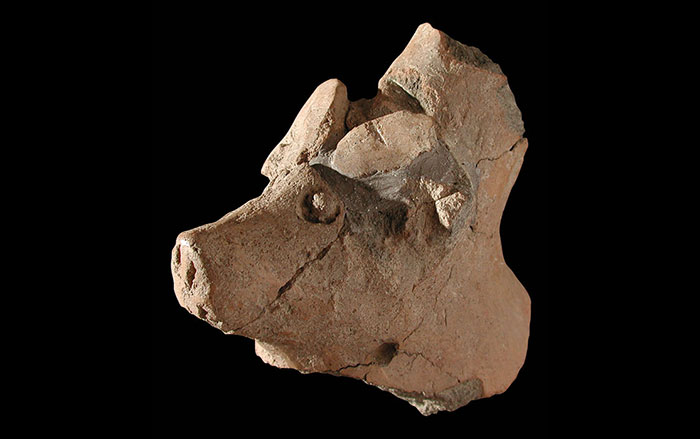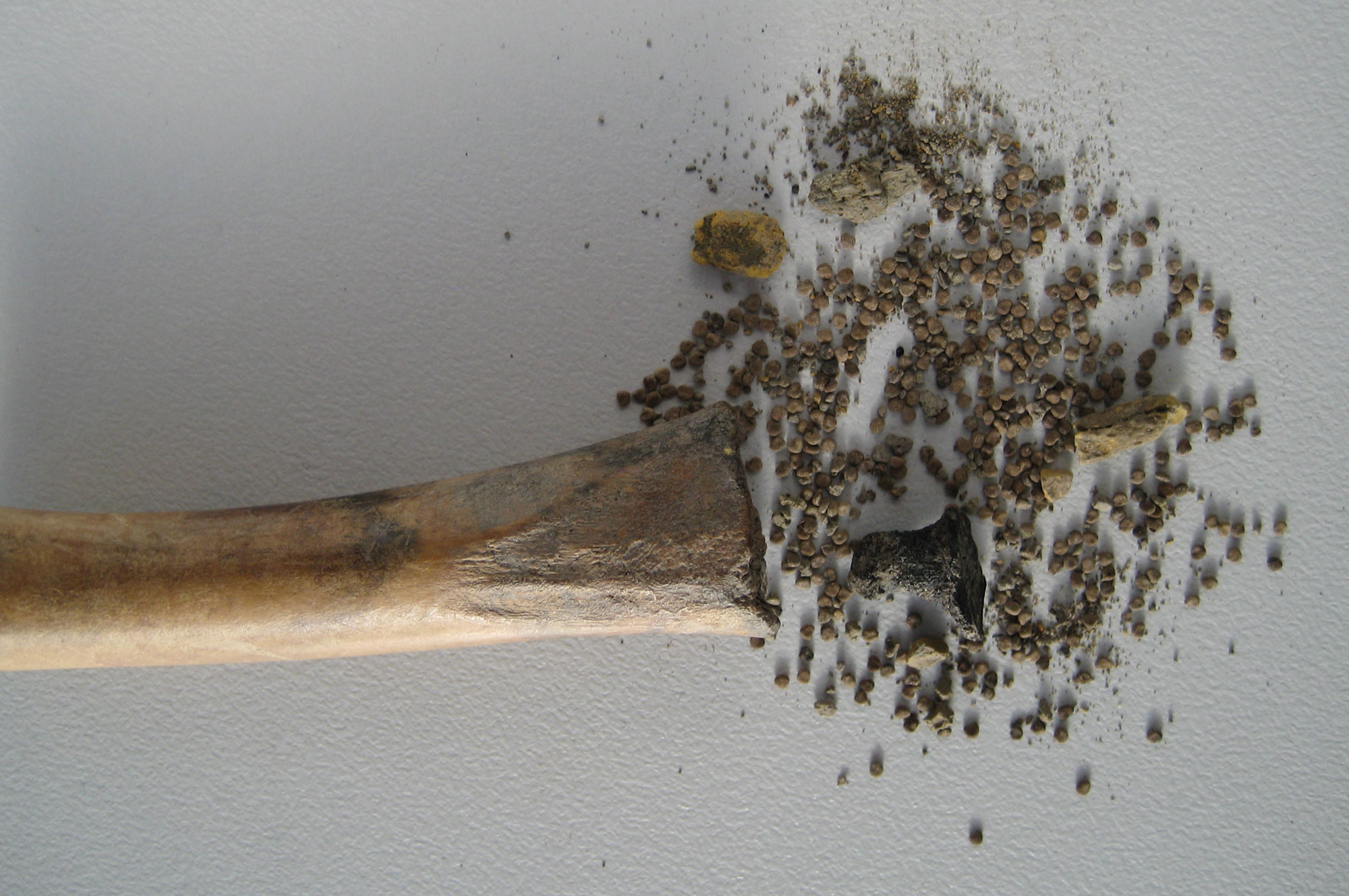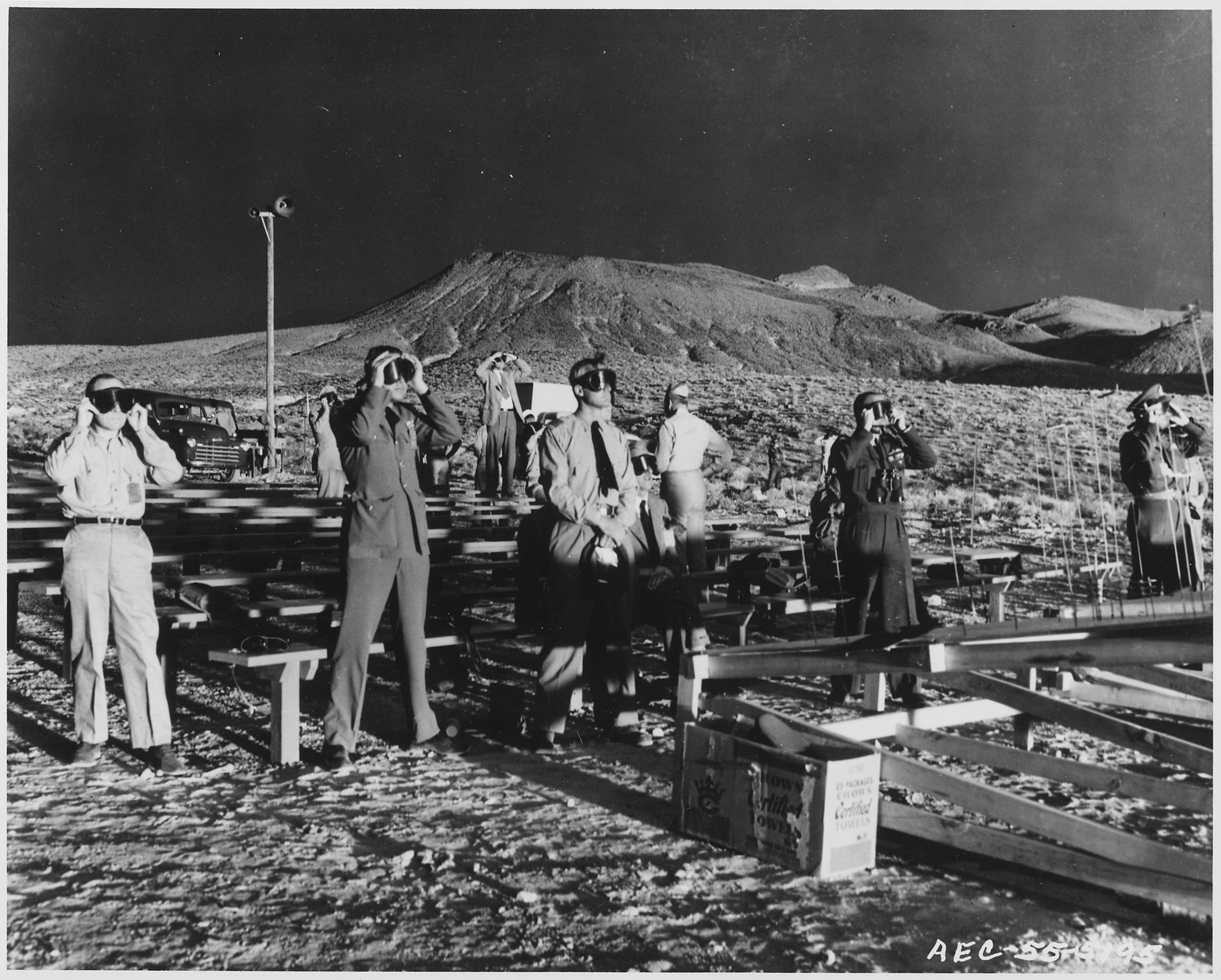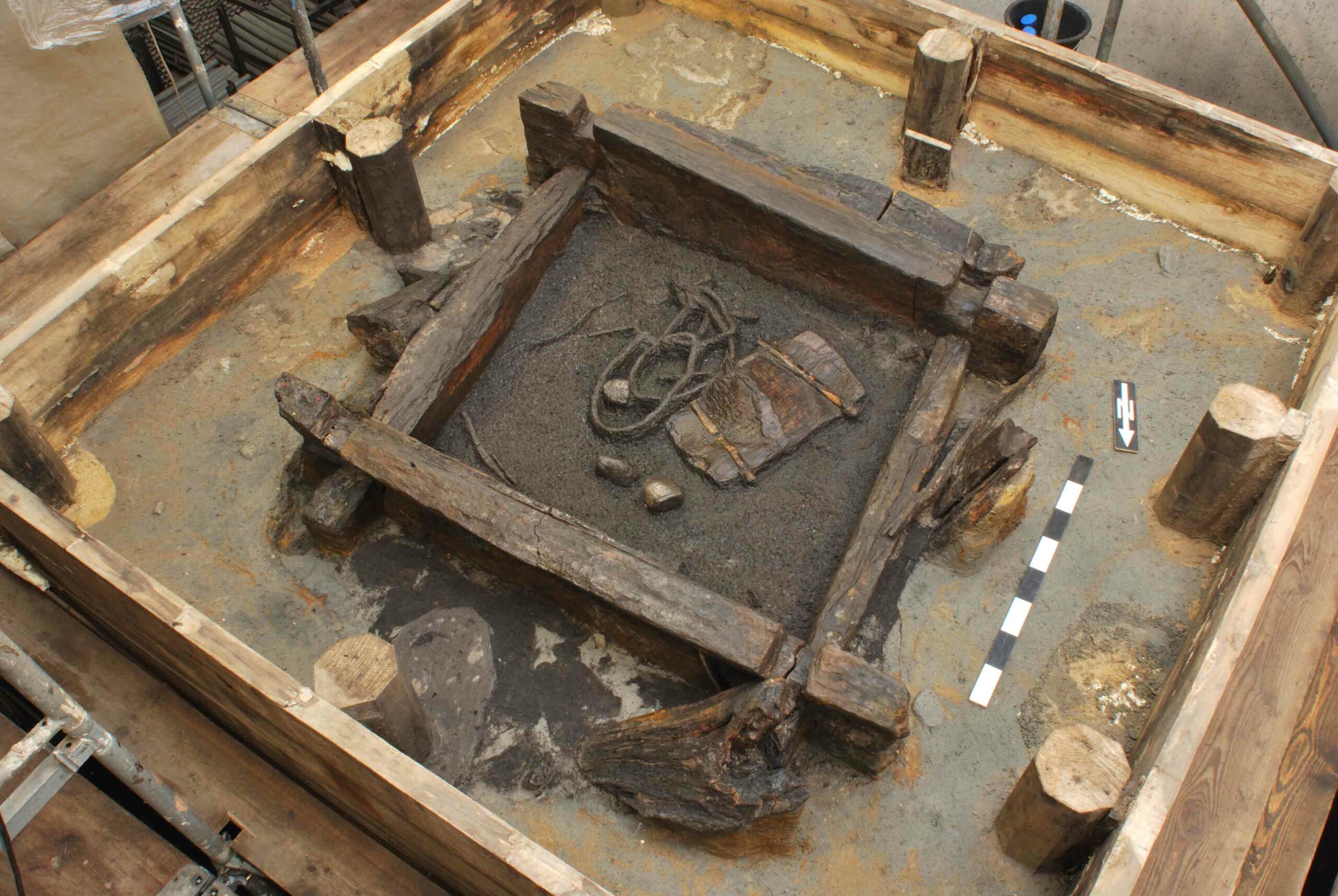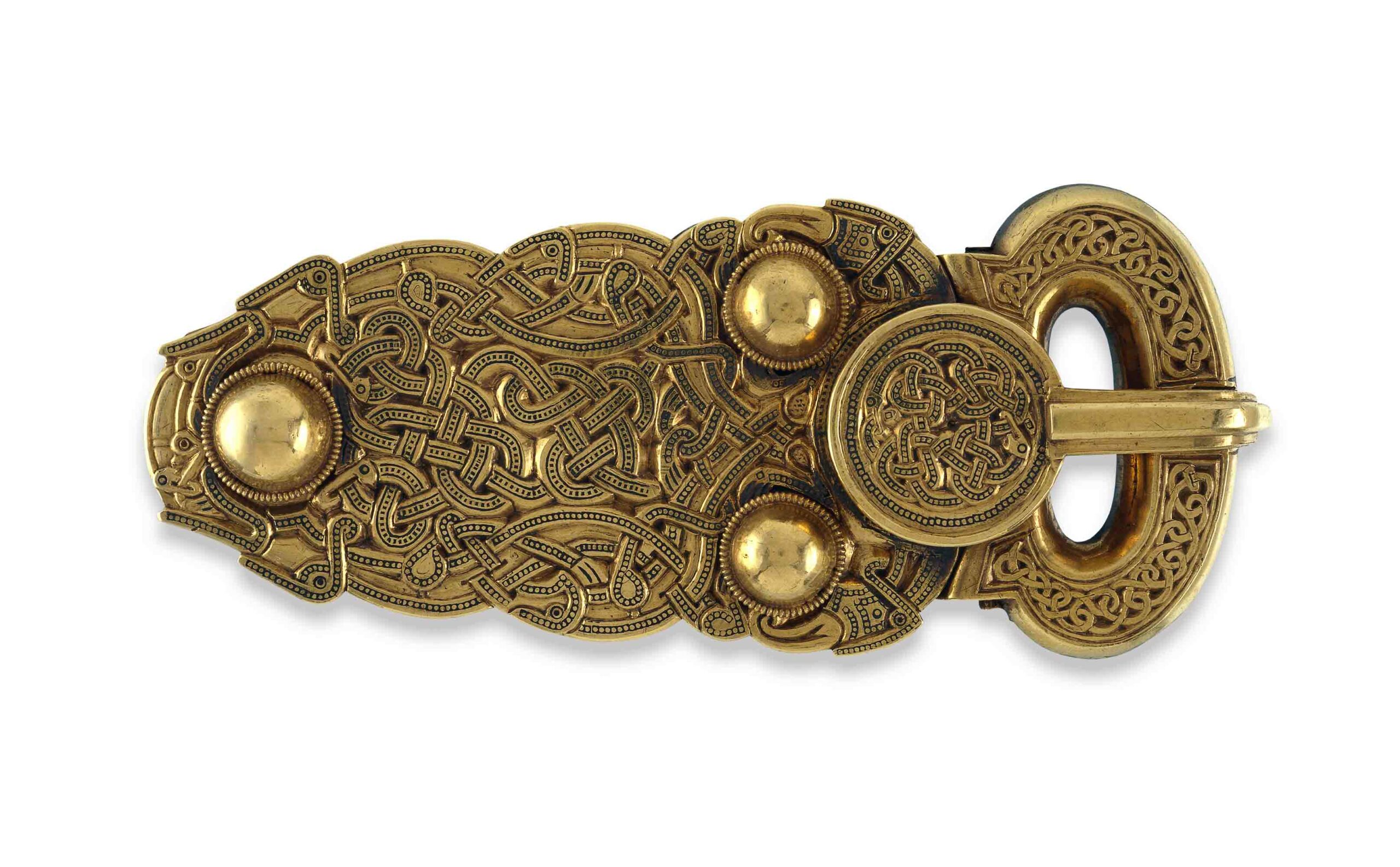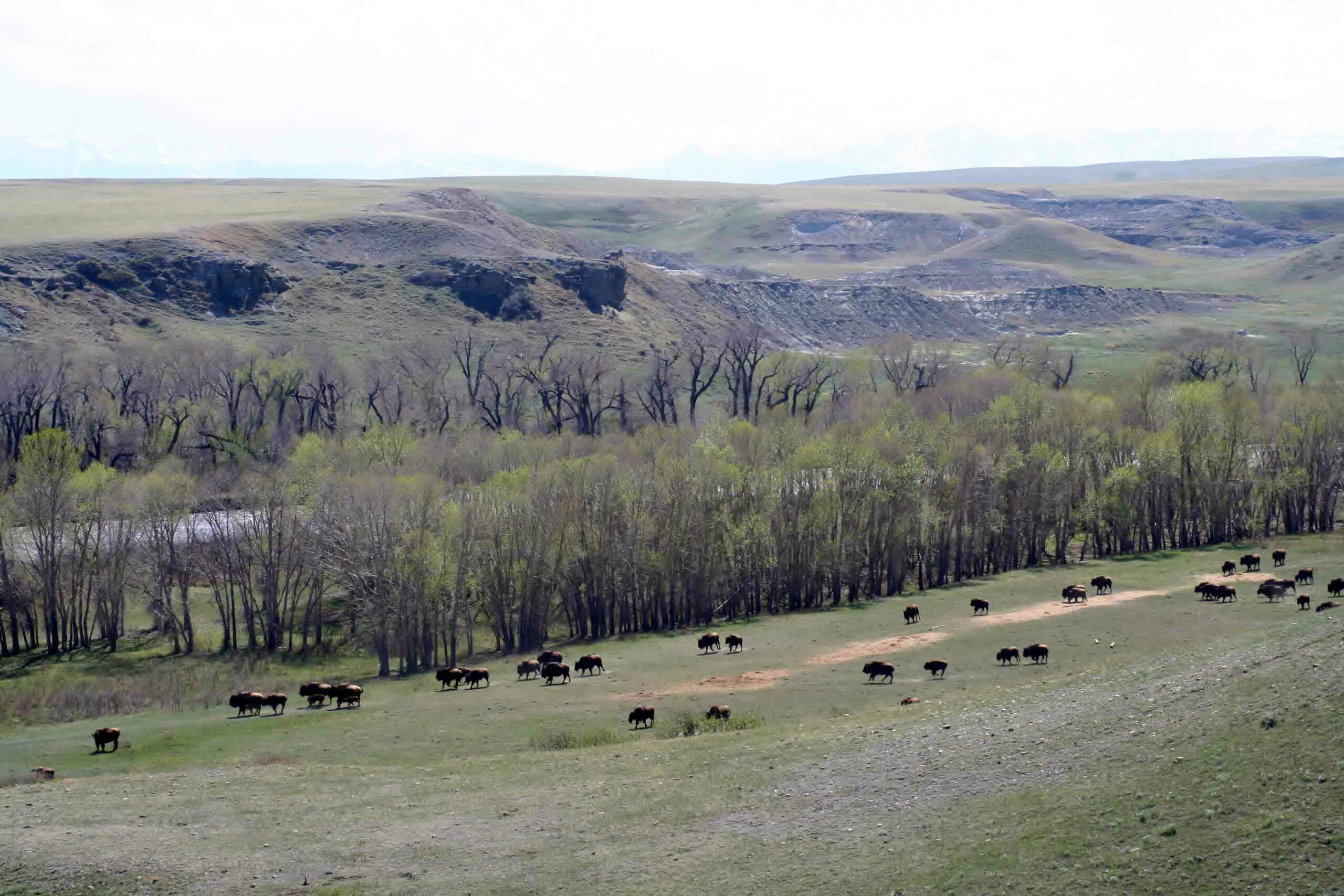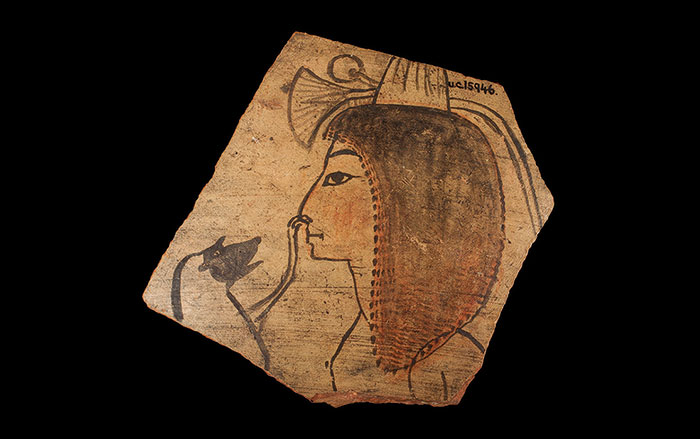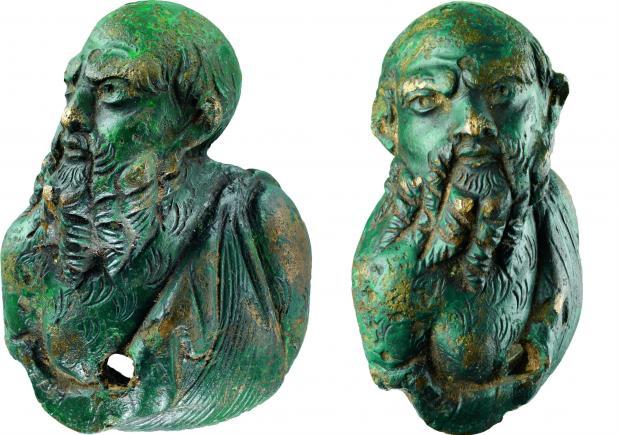
COPENHAGEN, DENMARK—Science Nordic reports that a tiny bronze sculpture discovered by a metal detectorist on the Danish island of Falster has been identified as an image of Silenus, the companion and tutor of the wine god Dionysus, by experts at the National Museum of Denmark. The finely detailed figure depicts an elderly, bearded, balding man with thick lips and a plump nose that was originally a fitting from the headrest of a Roman dining couch, or a lectus tricliniaris. Such a bust of Silenus would have been paired with a figure of a mule’s head, since Silenus was often shown inebriated and carried by others or hanging over the back of a mule. The fitting may have come to Denmark on a Roman lectus tricliniaris, but it probably arrived as a loose object through trade, as a war trophy, or a gift. To read about a depiction of the god Silenus in one of the most famous works of ancient Roman art, go to "Saving the Villa of the Mysteries."


